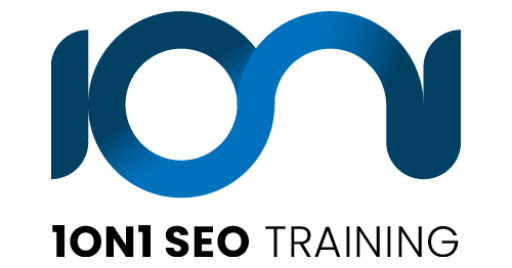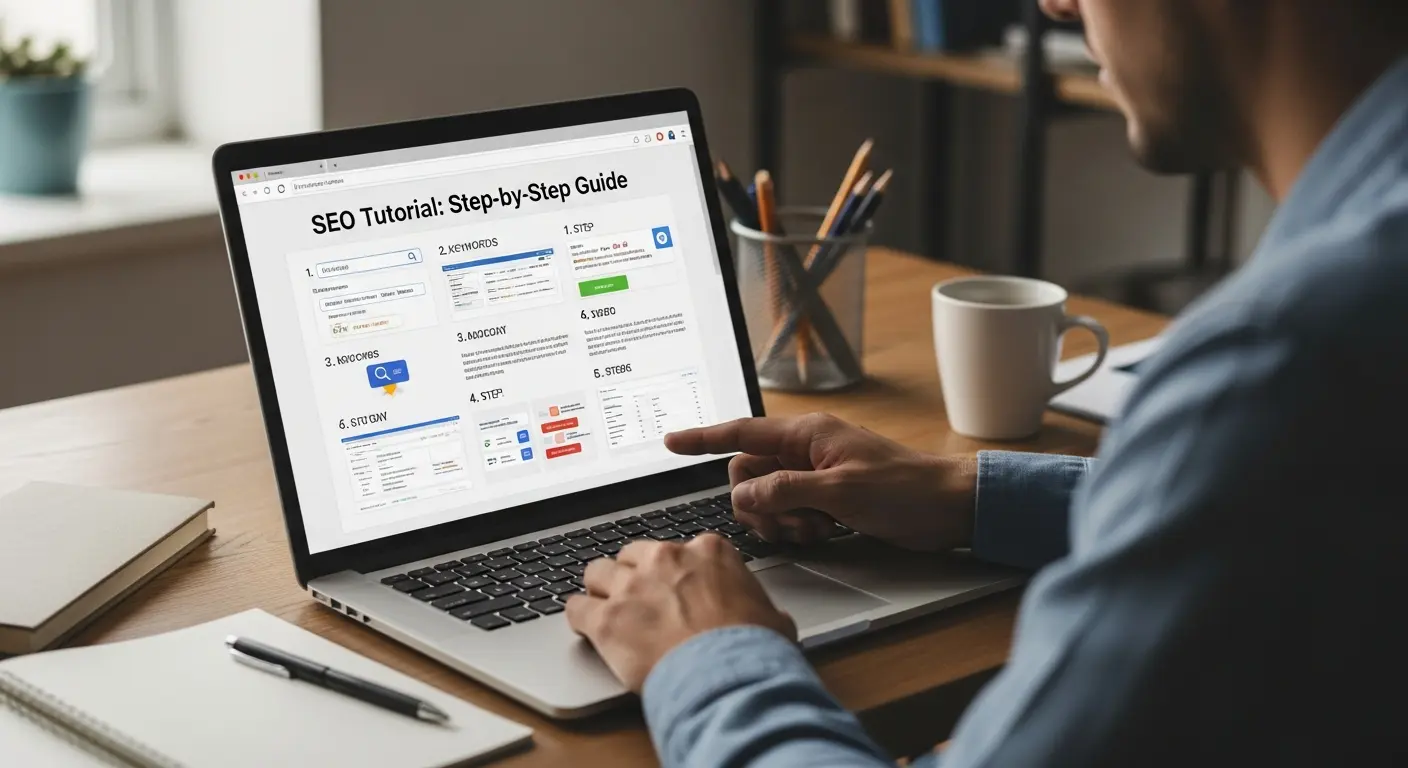We spend so much time talking about all of the different things that contribute to search engine optimization, when in the end it all comes down to the same simple question – how to do better on Google?
As simple as the question may seem, the answer is even simpler – if you want to do better on Google, do stuff on Google (not just on your website!). Now, that isn’t to say that there aren’t a million different working parts to an SEO strategy and that they aren’t all important in different ways. However, over the past two decades as an SEO coach and trainer, I have come to realize that some of the biggest ranking boosters come from the pieces that have a direct connection with Google. Plus, Google has been placing an increasing importance on things like Google my Business and other Google-directed optimization tactics in recent years.
Optimize your name directly on Google
So, if jumping higher in Google rankings is your main goal at the moment, start by looking on Google’s own site. Google has actually taken a lot of the guesswork out of SEO, by telling us exactly what to do. They have created their own tools for promoting your business and boosting its rankings, through strategies such as YouTube, Google My Business, Google Posts, etc. By utilizing Google’s own tools, you are bound to get yourself higher rankings.
Here are some Google-produced options for targeting your SEO:
- Google Business Profile
- Google posts
- Google reviews
- Google trends
- Google Q&A
- YouTube
- Google correlate
- Google voice
- Google mobile-friendly test
- Google PageSpeed insights
- Google alerts
- Google sheets
- Google Chrome
Local search SEO for the win
I would challenge you to give me a search term that doesn’t have a local search result. Back in the old days, searching for a pizza parlor in California would yield national chains and results from just about anywhere. Nowadays, it is completely different. If you search for a pizza parlor, your search will yield custom results based on your location and the restaurants closest to you. Obviously, the algorithm combines both proximity and traditional rankings/ positioning to get you this result. Local search results are now popping up for almost every kind of search on Google – start paying attention and you will notice the 3-pack local search results at the top of most results pages when you perform searches.
Google Business Profiles: GMB is one of the most important SEO strategies to prioritize. Working directly on your GMB listing will boost your rankings and make you more apparent on results pages – from making it onto the local 3-pack results, to the business listing information on the right hand side of the desktop screen, to all of the additional listing information that Google will allow you to publish. Take advantage of all of the GMB features to ensure best possible rankings.
Google Reviews: It isn’t only potential customers that are paying attention to your star rating on Google, but Google as well of course! Take advantage of Google’s review feature to get good things said about yourself and have Google place you above competitors with lower rankings. You also need to be responding to reviews and saying your response in the right way (see related topic here). All of these elements not only serve for reputation management, but also for rankings, as Google values the opinions of its users and is heavily influenced by your ratings and the comments left about you.
Google Q&A: Questions and answers is another part of GMB that you can optimize for better rankings. Once you get quality, insightful, and practical questions left by Internet users, make sure to answer so that you can provide more information about your business and make the experience simpler for potential customers, while also checking off another box for Google.
Google Posts: Posts are a way for you to publish about your products, services, and events directly onto Google, where they appear alongside your business in search results. These posts stay live for seven days, so it is helpful to post often and consistently.
Using YouTube for off-page SEO
Although YouTube isn’t one of the more common forms of social media, it is definitely one of the most important. Google owns YouTube, so the company therefore holds the content generated on this platform to a high value. If your business does not already have an account, it is suggested that you make one, produce content, and use SEO strategies throughout.
SEO tracking tools created by Google
Using Google-created analysis and tracking tools is highly valuable to your SEO strategy, as you are getting insight directly from the entity that is on the other side rating it. Google has come out with a number of different tools over the years, which can help you to improve your SEO. These essentially give free advice, so you would be foolish not to take advantage of it!
Google Trends: Google Trends gives out advice on trending topics and keywords, which can help you in selecting keywords, drafting up blog post ideas, and knowing how to position yourself in the market. This is both a discovery and comparison tool, and when you know how to use it, can really produce a plethora of information. For more on how to use Google Trends to your advantage, check out this blog post.
Google Correlate: This is a tool for testing keyword data. As the name indicates, it allows you to focus on relevant keyword research by uncovering search patterns, otherwise said, keywords that are usually searched together. This will prioritize the keywords that correspond best to your primary keyword.
Google Voice: Google Voice offers a simplified system for businesses to have one line (one number) for all of your phones, and offers free long distance, a simplified voicemail, text messaging through your computer, and more. This can be a great addition to your SEO and marketing plan.
Google Mobile-Friendly Test: Google has made it clear that it wants websites to be mobile friendly, in order to keep up with the world of mobile-dominated searches. As such, the mobile dimension of search can have a huge impact on search engine results. The Google Mobile-Friendly Test tool has been released by Google as a measurement tool, which analyzes whether your site is mobile-friendly or not in a matter of seconds.
Google PageSpeed insights: Having a fast website is also important, and this too affects SEO. This tool runs an analysis for both desktop and mobile speed, and then gives you Google-produced advice on different things for you to fix.
Google Alerts: Alerts is a tool designed to send you notifications any time a name or keyword you select is mentioned online. A good strategy is to set up alerts for your top five competitors, so that you can track them and get a notice anytime an online outlet mentions them. This can help you long-term to keep an eye on their strategy, to have good third party sources that might have interest in or be useful to your company, and more.
Google Sheets: This tool can help with a number of SEO-related tasks, such as creating a content calendar for blog posts and newsletters, tracking number of backlinks and where they come from, and tracking past and future keywords. The tool is especially useful when SEO strategizing is divided amongst several individuals and collaborating with them different tasks.
Google Chrome: While Google Chrome is a web browser and not actually a “tool” for SEO, it can be considered a Google tool due to the fact that it has a variety of SEO and website analysis extensions which allow you to get SEO reports and gaining insight on both yourself and your competition. So, if possible, switch to this browser and download a few of the SEO extensions available as free tools.
Conclusion: Turn to Google for your SEO
In conclusion, Google has so much more to offer than just search results, and can truly be your best friend when it comes to getting at the top of those results. I encourage you to try each of these features and tools to find out which help your website the most.
As an SEO coach, I am familiar with Google and all of its features. I can train you on how to use Google to your advantage and develop the optimal strategy for implementing Google into your SEO, with guidance and assistance throughout the entire process. Get in touch and we can have a look at your website to see what Google can do for your business.




